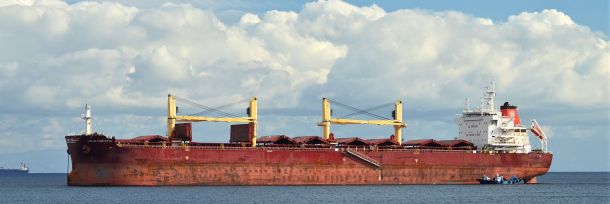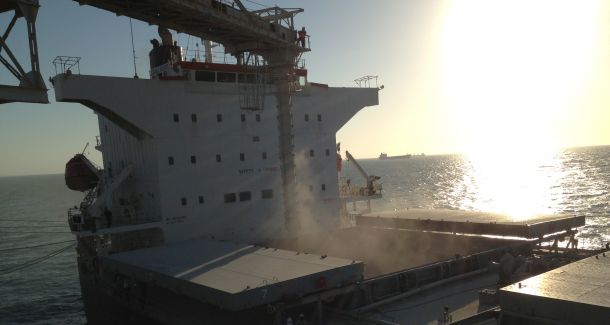Agrium’s reply to WSRW, 19 February 2016
Published 22 February 2016
Agrium Inc.’s letter of reply of 19 February 2016, to WSRW’s inquiry of 26 January 2016, included below.
26 January 2016
Brussels
Agrium Inc.
13131 Lake Fraser Drive S.E.
Calgary, Alberta, T2J 7E8
Canada
To the attention of Richard Downey
Vice President, Investor/Corporate Relations and Market Research
Dear Mr Downey,
Request for comments -
Report on Agrium’s phosphate imports from occupied Western Sahara
Western Sahara Resource Watch (WSRW) is again privileged to write to you. This letter is about Agrium Inc’s phosphate imports into Canada from occupied Western Sahara in 2015.
In the coming weeks, WSRW will publish its annual “P for Plunder” report, documenting the phosphate trade from Western Sahara in the previous calendar year. As one of the leading importers, Agrium Inc will be featured in the report.
Our research shows that Agrium has received 8 shipments of phosphate rock mined at Bou Craa, Western Sahara, in 2015. Our calculations put the total volume of those shipments at about 437,000 tonnes. Though still substantial, it is a decrease from the company’s import of 2014, estimated at 779,000 tonnes.
In our previous letters, we have outlined our concerns with regard to the detrimental effects of Agrium’s imports on the Western Sahara peace process, and on the Saharawi people’s well established and universally recognized right to self-determination. We will not repeat them here.
However, there are some recent, notable developments that ought to be addressed. You will have seen the Concluding Recommendations in the review of Morocco by the UN Committee on Economic, Social and Cultural Rights (CESCR), published in October 2015. The UN treaty body was very clear on the significance of the Saharawi people’s right to self-determination, also with regard to Western Sahara’s natural resources. The Committee recommended Morocco to “guarantee respect for the principle of prior, free and informed consent of the Sahraouis, and thus that they are able to exercise their right to enjoy and utilize fully and freely their natural wealth and resources”. In the present circumstances, we know that this does not happen.
The Legal Opinion published by the African Union on 14 October 2015 takes the matter even further by avowedly referring to Morocco as “the occupying power” in Western Sahara. “Only the people of Western Sahara have the right to permanent sovereignty over their natural resources”, the Opinion continues. The African Union called on companies to adhere to international obligations and refrain from business deals with Morocco pertaining to Western Sahara, as that leads to “perpetuation or legitimation of the colonial situation in Western Sahara”.
On 10 December 2015, the Court of Justice of the European Union annulled the EU-Morocco Free Trade Agreement as it applies in Western Sahara. In its judgment, the Court states that Morocco has no mandate by the United Nations or by any other institution for the administration of the territory.
In the fall of 2015, an upsurge in socio-economic protests was observed in occupied Western Sahara. What started out as regular demonstrations by unemployed Saharawi graduates in El Aaiun, has – particularly in recent weeks – spread to other parts of the Saharawi demographic and to other towns in the occupied territory. Saharawis protest against what they refer to as “Morocco’s policy of marginalizing Saharawis”. They no longer accept being treated as second class citizens, while Moroccan settlers receive employment on the back of Morocco’s illegal exploitation of the Saharawis’ homeland. Grievances are in particular targeted against your supplier of phosphate rock, Office Chérifien des Phosphates SA (OCP). Demonstrations are taking place daily, and are being met with disproportionate use of force by the Moroccan police. A group of 19 Saharawis is currently on hunger strike to demand their right to employment and a decent living. On 22 January 2016, a group of Saharawis entered the headquarters of OCP in Casablanca, in Morocco proper, to demand their share of their land’s phosphates. As a side note, protests against OCP are also taking place throughout Morocco proper, especially with regard to the poor working conditions and health and safety concerns for phosphate workers.
In view of the above, we would be most grateful if, preferably before this February 20, Agrium could clarify the following issues;
1. Is it correct that Agrium received eight shipments of phosphate rock from Western Sahara during 2015, amounting to approximately 437,000 tonnes?
2. What would explain the firm’s lesser need for/dependence on Saharawi phosphate in 2015, in comparison to 2014?
3. Would Agrium agree that the people of Western Sahara have a right to self-determination as defined by international law and the 1990-91 referendum agreement of the UN, Morocco and the Frente Polisario?
4. Would Agrium agree with the conclusion of the International Court of Justice that there are no ties to sovereignty between the kingdom of Morocco and the territory of Western Sahara?
5. Does Agrium accept the 2015 conclusion of the UN Committee on Economic, Social and Cultural Rights (CESCR) about the principle of the prior, free and informed consent of the Saharawis in relation to the exploitation of Western Sahara’s natural resources? How will the company assure itself of a credible consent prior to importing from Western Sahara?
6. Does Agrium accept the conclusion of the Court of Justice of the European Union that Morocco has no mandate to administer Western Sahara?
7. What does Agrium say in reply to the legal opinion of the African Union about the exploitation of occupied Western Sahara’s natural resources?
WSRW remains of the view that Agrium must not purchase phosphate rock from Western Sahara while the final status of the territory is pending. By ending all engagement in occupied Western Sahara, Agrium can significantly contribute to the good faith needed to reach a just and lasting outcome of the UN peace talks. In the long run, this will benefit the entire Maghreb region.
We remain at your disposal should you have any questions. We look forward to hearing from you.
Sincerely,
Sara Eyckmans
Coordinator
Western Sahara Resource Watch
News
New report: Western Sahara phosphate trade halved
The export of phosphate rock from occupied Western Sahara has never been lower than in 2019. This is revealed in the new WSRW report P for Plunder, published today.
24 February 2020
New report on Western Sahara phosphate industry out now
Morocco shipped 1.93 million tonnes of phosphate out of occupied Western Sahara in 2018, worth an estimated $164 million, new report shows. Here is all you need to know about the volume, values, vessels and clients.
08 April 2019
Nutrien maintains Western Sahara link via China
Nutrien - until now the biggest importer of phosphate rock from Western Sahara - has ended its trade. But what about the stock-exchange registered Sinofert Holdings in which they are the second biggest owner?
27 January 2019
US imports of Western Sahara conflict rock to end
A landmark decision has been made. The large-scale exports of conflict phosphates from occupied Western Sahara to the United States will stop this year.
13 September 2018



